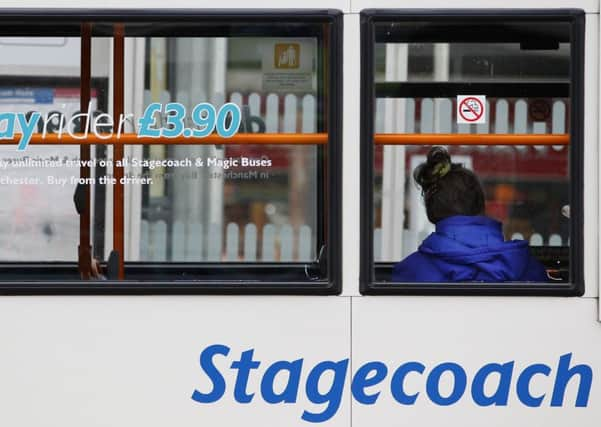Stagecoach buoyant despite petrol price fall


That compared with £180.7m in the previous 12 months, and the Perth-based group’s shareholders benefit with a 10 per cent rise in the total dividend to 10.5p from 9.5p via a 7.3p final payment.
Chief executive Martin Griffiths said: “These are a solid set of results notwithstanding continued tight central and local government spending, and increased competition for public transport from the private car driven by lower fuel prices.”
Advertisement
Hide AdAdvertisement
Hide AdRoss Paterson, finance director, said that even though the oil price was recovering, the long-distance coach sector, typified by Stagecoach’s megabus.com operation in North America, would still face pressure from the lower oil price “until November, December time. America is affected more, partly because petrol is less heavily taxed”.
The company said that although its long-distance American operations were most hit by the petrol price headwinds, the UK regional bus arm was also impacted, with profits falling 4.3 per cent to £141m in the year to end-April.
Stagecoach’s rail business fared better over the year as its joint venture with Virgin Rail, in which it has a 49 per cent stake, saw earnings leap to £28m from £2.6m a year earlier.
It took over the East Coast franchise between Edinburgh and London King’s Cross in March and said the full effects of the new contract would be felt in the current financial year.
The wider UK rail business – which includes South West Trains and East Midlands Trains – saw earnings drop 22 per cent to £26.9m due to rises in premium payments to the government, but a hike in passenger numbers helped drive an 18.1 per cent rise in revenue at the division.
Stagecoach also secured a new franchise for the West Coast service between Glasgow and London, which started last June and runs until at least end-March 2017. The firm hopes to add a raft of new routes over the next few years. It is in the running for the East Anglia line, having been short-listed as part of a joint venture with Abellio, and has its sights set on the trans-Pennine route, which is set to be awarded this year.
Griffiths said the group had grown its megabus.com business in mainland Europe, launching domestic networks in Germany and Italy and new services in France. Passenger volumes in Europe lifted 60 per cent in the year.
“Looking ahead, we see further opportunities in Europe to increase our share of a growing market as countries take steps to liberalise inter-city coach services,” he added.